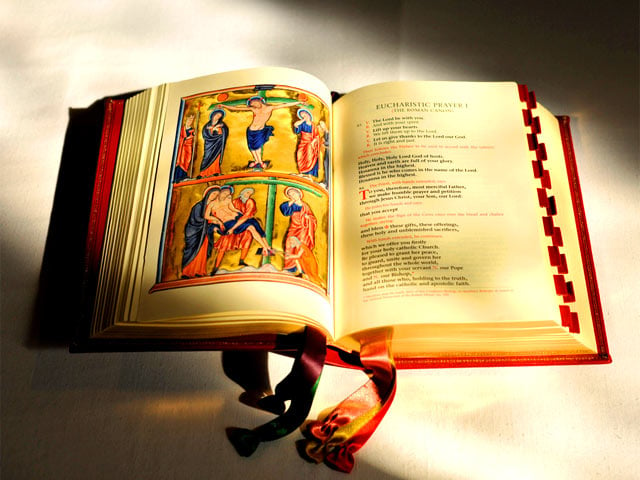- Strona główna
-
Nasza wspólnota
- Archdiocese of Toronto
- Pre-Authorized Giving (P.A.G.)
- Mass Schedules and Devotions
- Donate
- Office Hours
- Catholic Cemeteries
- Parish Forms
- Wolontariat
- Dostępność
- Polityka bezpiecznego środowiska
- Saint Aidan - Our Patron Saint
- Photo Gallery
- Schools in Parish
- Nasza wiara
- Nasze duszpasterstwa
-
Życie parafialne
- Kalendarz wydarzeń
- St. Aidan's Video Links
- Blog Parafialny
- Archiwum wiadomości
- Mass Etiquette and Information
- Ad Orientem News and Facts
- Catholic Links
- Prayers and Announcements
- Luis Dizon Reflections - Archive
- Biuletyn
- Skontaktuj się z nami
- Wyszukaj

Blessings and Curses (14th Sunday in Ordinary Time)
Isaiah is full of contrasts. On the one hand, he speaks of God chastising His people for their sins by withdrawing His protection from them and allowing them to be subjugated by foreign powers such as the Assyrians and Babylonians. On the other hand, he also speaks of comfort and blessing for them after the Exile brings about their repentance.
This contrast is clearly seen in this last chapter, which focuses on God’s blessings on His people. He promises to restore to them everything they’d lost during the exile. However, this comes right before some of the most frightening words in the Old Testament. Verse 24 warns that those who choose to continually disobey God are, in effect, choosing hellfire for themselves, in the following words: “And they shall go forth and look on the dead bodies of the men that have rebelled against me; for their worm shall not die, their fire shall not be quenched, and they shall be an abhorrence to all flesh.”
This highlights a theme that appears continually throughout Scripture: Blessings and curses. In the Old Testament, God promises blessings upon Israel if they believe and obey Him, but curses upon them if they disbelieve and disobey. Israel was continually rebelling against God. When God allows them to receive the consequences of their choices, they would realize their errors, repent and receive God’s blessing, only to fall into sin again sometime afterwards.
The contrast between blessings and curses connects to this Sunday’s Gospel reading as well, as Jesus contrasts those who receive His disciples with those who do not. Those who receive them obtain God’s peace, and the Kingdom of God has come upon them. Those who do not receive them have rejected God, and if they persist in this until the end of their lives, they separate themselves eternally from Him (Luke 10:1-12).
At an individual level, we are also called to choose whether to follow the path of life or the path of death. The early Christians referred to this as the “Two Ways.” One early Christian document called the Didache puts it this way: “There are two Ways, one of Life and one of Death, and there is a great difference between the two Ways” (Didache 1.1). Each of us are faced with this choice every day: To follow the way of life, or the way of death.
J. Luis Dizon
